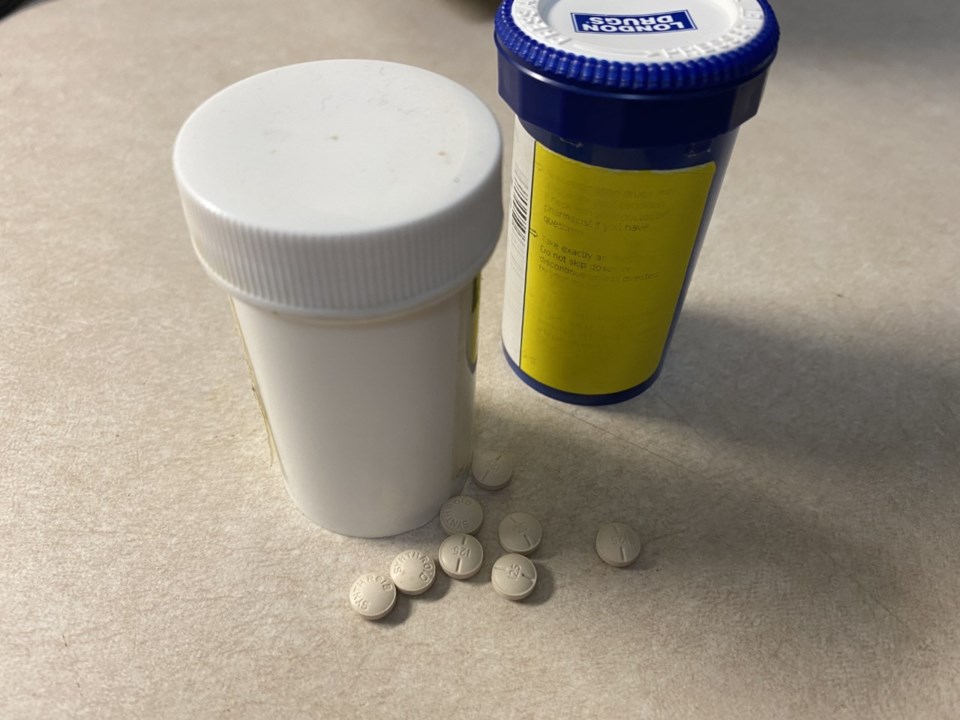New Westminster-Burnaby MP Peter Julian is vowing to continue fighting for a national pharmacare program.
The NDP member of Parliament sponsored Bill C-213, the Canada Pharmacare Act, which is calling for universal, public drug coverage. When it went to a vote on Feb. 24, it was defeated 295 to 32.
“Things didn’t go the way Canadians hoped,” Julian later told the Record. “Support for public universal pharmacare is 88% across the country; replicated in our communities. There is absolutely no doubt that the vast majority of Canadians support this.”
According to Julian, there is “tremendous support” for the program in New Westminster and Burnaby. In addition to more than 100 cities and towns across Canada, including New Westminster and Burnaby, he said the bill has been endorsed by organizations, including the Canadian Federation of Nurses Unions, Canadian Doctors for Medicare, the Canadian Pediatric Society, the Canadian Labour Congress and labour unions across the country, and activist groups like the Council of Canadians.
“I think, given the reaction – the public reaction has been overwhelmingly negative to the Liberals’ vote and overwhelmingly positive to the legislation – the legislation will pass. It’s just a question of time,” he said. “We are going to keep pushing.”
In 2018, the federal Liberal government created an independent advisory council to engage with Canadians and to advise the government on how to implement national pharmacare.
In June 2019, the seven-member council released a 171-page report calling for the establishment of a universal, single-payer public pharmacare system. It recommended coverage for a list of common and essential drugs be implemented by Jan. 1, 2022 and a comprehensive plan be in place by January 2027.
Not giving up
Following last week’s vote, some Liberal MPs accused the federal NDP of playing politics. Some MPs stated the bill encroached on provinces’ and territories’ ability to administer their own health-care systems.
Julian said the bill was based on the recommendations of the Hoskins report, which had been commissioned by the Liberal government to determine how to implement a universal pharmacare program.
“The Hoskins report is very clear: you need to have in place the principles of the Canada Health Act, so those five principles are: comprehensiveness; universality; accessibility; portability; and public administration,” he said. “It’s kind of disingenuous for Mr. Trudeau to say, ‘Well, we are going to go to Doug Ford and Jason Kenney, and they are going to tell us what pharmacare will look like.’ That’s not how we developed universal health care. Universal health care was developed with the principles being put in place first, and immediately most of the provinces jumped in because it made so much sense.”
Julian said a couple of provinces didn’t step in right away, but they soon joined the national program. He said it’s likely one or two provinces wouldn’t immediately join a national pharmacare program but would do so after seeing the positive impacts.
“Universal pharmacare in New Zealand reduced the cost of some medications by 90%. So, it’s a no-brainer from a financial standpoint, from a social and health standpoint, and from a support to business standpoint as well because small businesses won’t have to pay for drug plans any more for their employees,” he said. “It’s just win-win-win. That’s why we know ultimately we are going to prevail. We are just going to have to keep pushing.”
Julian said some Liberal MPs didn’t understand how much support there is for universal pharmacare in Canada.
“Any person running for election next time round who has not demonstrated their commitment to universal pharmacare will suffer as a result,” he said. “There is a consensus now in Canada.”
Follow Theresa McManus on Twitter @TheresaMcManus
Email [email protected]


